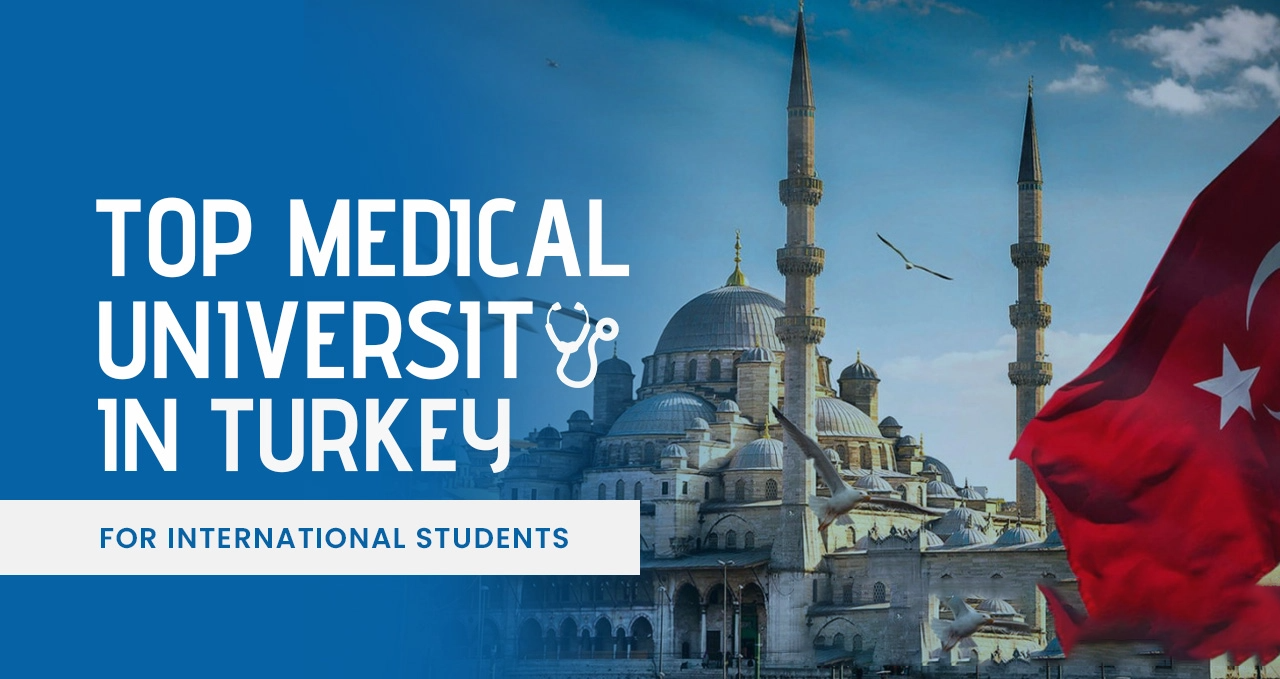Turkey is a more-than-vast key between Europe and the Middle East. It edges Greece and Bulgaria to the west, Georgia, Armenia, Azerbaijan and Iran to the east, while participating borders with Iraq and Syria to the south-east. As well, Turkey lies as a gateway between the Mediterranean and the Black Sea.
Turkey's capital is Ankara, but its largest and most applicable city is Istanbul. Istanbul is on the west side of the country, where the Bosphorus Strait - the division line between Europe and Asia - runs in the midpoint of the city. Other big cities include Bodrum, Antalya, Gaziantep, and İzmir. Turkey has long played an expressive role in both Europe and the Middle East. This is still reflected today in Turkey's culture, its customs and even the Turkish language.
Undergraduate Degrees
Undergraduate degrees are typically four years in duration. More specialist courses - such as medicine - can take six years. Postgraduate degrees are usually two years in length. PhD's normally take four years. It's also possible to get a related degree. These take two years and will result in a qualification that is higher than a high school diploma but are not at undergraduate level.
Higher Education
All higher education is oversaw by the TYYC (Turkish National Framework for Higher Education). The TYYC is generally similar to the Bologna Process. Turkey is also a member of the ECTS (European Credit Transfer System). In Turkey, the workloads of students are also supervised by the TYYC in order to ensure that students are working harder and learning, but not overtaxed.
As for how one studies, well, it's the same as in most countries. It is an amalgam of lectures, reading, and independent study. If your subject is practical, then you will also spend time in the lab or workshop.
Top Universities in Turkey for Pakistani Students
- Anadolu University: Has evolved power in engineering, business, and the social sciences.
- Istanbul University: Relatively old and one of the best universities in Turkey, with a pasture of programs.
- Teknik University: Engineering, architecture, and technology academic programs.
- Istanbul Teknik University: Strong programs in engineering, architecture, natural sciences.
- Bogaziçi University: It has resided among the top research universities with programs in engineering, business, social sciences.
- Gazi University: Submits undergraduate studies in the fields of medicine, engineering, and social sciences.
- Hacettepe University: Specified for both its rugged medicine, engineering, and social sciences programs.
- Ankara University: One of the elderly institutions of higher learning in the country, offering a wide array of programs.
- Çanakkale Onsekiz Mart University: Offers undergraduate studies in engineering, business, and social sciences.
- Uludag University: Owns strong programs in the fields of engineering, business, and social sciences .
- Bilkent University: The leading research university offering programs in engineering, business and social sciences.
- Akdeniz University: Offers a range of programs, including medicine, engineering, and social sciences.
- Sakarya University: Focuses primarily on engineering, architecture, and technology programs.
- Dokuz Eylül University: Offers programs in engineering, business and social sciences.
- Ege University: Strong program in the fields of medicine, engineering, and social sciences.

Turkey Scholarships
Turkey offers many scholarships to international students, such as the Turkish Government Scholarship programme that is also known as Turkiye Burslari Scholarships. These scholarships will be awarded for an undergraduate, master's and PhD-level courses offered in top Turkish universities which include:
- Middle East Technical University (METU)
- Bilkent University
- Istanbul Technical University (ITU)
- Bogazici University
- Sabanci University
Benefits from Turkey Government Scholarship
- Free Tuition: All education is absolutely free
- Monthly Stipend: 1000-1800 TL each month basing on the program
- Room Accommodation: Cots or housing allowance
- Medical Insurance: Public medical insurance coverage
- Expense for traveling: two complimentary tickets for arrival and departure
Eligibility of Candidates
- Applicants should be under 21 for undergraduate, 30 for master's, and 35 for PhD programs.
- Minimum record of 70% for undergraduate, 75% for master's, and 90% for PhD programmes.
- Any language of the candidate in English or Turkish.
- The window for application in the scholarship is open from January 10th to February 20th, 2025, under the Turkey Government Scholarship 2025-2026.
| Category | Details |
| Location | Europe and Asia border |
| Language | Turkish (official), English (widely spoken) |
| Top Universities | METU, Bilkent, ITU, Bogazici, Sabanci |
| Programs | Bachelor's, Master's, PhD, Exchange, Summer Schools |
| Tuition Fees | $500-$2,000 per year (avg.) |
| Living Costs | $300-$500 per month (avg.) |
| Scholarships | Turkish Govt., Türkiye Scholarships, Research Scholarship |
| Visa Requirements | Student visa, valid passport, admission letter |
| Eligibility | GPA 2.5-3.5, language proficiency (English/Turkish) |
| Application Deadline | Varies (April-September) |
| Academic Year | September-June |
| Duration | 2-4 years (Bachelor's), 1-2 years (Master's) |
- Unique Cultural Experience: The country displays a rich cultural heritage with strong influences from both the East and West.
- Academic Excellence: Turkish universities are of international standards and offered in English to cater to foreign students.
- Less Expensive Education: Turkish tuition fees and lifestyle expenditures are relatively lower compared to Western countries.
- Scholarship Opportunities: Government scholarships, scholarships by the university, and others are available.
- Geographical Location: Turkey is finely positioned between Europe and Asia with easy access.
- Language Skills: Follow on and enhance your Turkish language skills and discover other languages.
- Historical Significance: Know ancient civilizations, historical landmarks, and the colorful cities.
- Diverse Programs: It has a wide range of undergraduate and graduate programs in different streams of Turkish universities.
- International Community: Meet new international friends all over the world.
Career Opportunities:
- Ensure an international degree for your career profile.
- Most universities in Turkey offer accessible education without compromising quality. This makes Turkey a charming option for many Pakistani students.
- Many scholarships are accessible to global students. These scholarships can help you with tuition fees, accommodation, and other living expenses while you study in Turkey.
- Turkey's unique position as a bridge between Europe and Asia offers rich cultural diversity. By experiencing various cultures and languages, Pakistani students can assemble international connections and evolve a global outlook.

Educational Qualifications
Your academic qualifications should be powerful, with good grades in the relevant field you are applying for.
Language Proficiency
Many universities in Turkey require evidence of proficiency in English or Turkish
- For English proficiency, a minimum IELTS score of 6.0 is commonly needed.
- For Turkish proficiency, you need to take the TÖMER test.
Entrance Examinations
Some universities require international students to take access exams:
- For undergraduate programs, the Turkish University Entrance Examination (YQS) is required.
- For graduate programs, you may need to take the GRE or GMAT.
Application Documents
You must provide varied documents with your application, such as:
- Transcripts
- Curriculum Vitae
- Letters of Recommendation
Visa Requirements
Pakistani students should contact the Turkish embassy in Pakistan to get specific instructions for obtaining a student visa.
Frequently Asked Questions
Q: Do I need a student visa?
Yes, check with the Turkish Embassy/Consulate.
Q: How do I get a residence permit?
Apply within 30 days of arrival.
Q: How is life in Turkey?
Relatively affordable ($300-$500 per month).
Q: Where can I live in Turkey?
University dorms, apartments, hostels
Q: What programs offer English as a medium of instruction?
Many universities offer English-taught programs
Q: Am I able to transfer credits from my previous university?
Check with the university.
Q: After graduation will I be able to work in Turkey?
Yes, with a work permit.
Q: How will studying in Turkey benefit my career?
International opportunities, networking.
Q: Can I study in Turkey without knowing Turkish?
Yes, many universities offer English-taught programs.
Q: How do I get health insurance in Turkey?
Public health insurance, private insurance options.
Hira Amir








.gif)


































